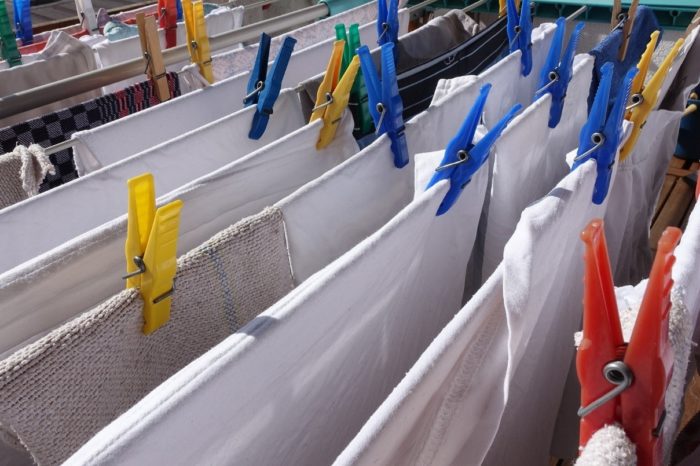Airing the State’s Dirty Laundry: New Findings Raise Questions Regarding Ethics and Transparency
More dirty laundry is coming to the surface in the Massachusetts state legislature. The Boston Globe reported earlier this week that former senate assistant majority leader Brian Joyce, already in hot water after buying designer sunglasses at a massive discount for all of his senate colleagues last January, spent over a decade taking advantage of free services at a dry cleaning shop in Randolph—potentially an ethics violation because state employees are barred from accepting any benefits worth more than $50 per year, according to the State Ethics Commission. Governor Baker called for an investigation.
These findings not only paint a dark picture of Senator Joyce, but also raise the question of how other dirty laundry at the legislature is managed.
Dry cleaning costs for legislators clearly should not be perks paid for by constituents.
And they should not be on the taxpayer’s dime. But are they?
Pioneer’s spending transparency website, Massopenbooks, reveals the legislature’s spending for “laundry services,” for which six payments were reported during FY14 and FY15 for a total of $1,868. That’s an average of $311 per bill. Data prior to FY14 is absent from the Massopenbooks report, leaving most of the legislature’s past “laundry services” spending a mystery.
The problem is that because the Massachusetts legislature exempted itself from public records law, we’ll never know what even the reported expenditures were for. Perhaps they were entirely appropriate, but the all the secrecy leads us to ask – is there even more dirty laundry to air?
Michael Weiner is a student at Northeastern University studying International Affairs. He is working as a Research and Programs Assistant at Pioneer Institute through the Northeastern Co-op program. Find Michael on Twitter a:t @michaelgweiner



